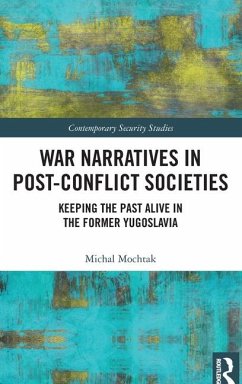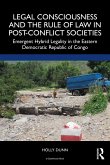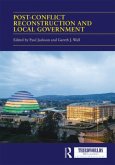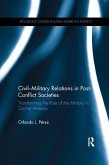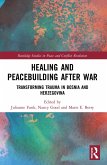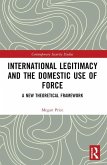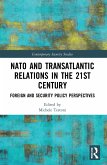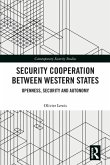This book studies war narratives and their role in the political arenas of post-conflict societies, with a focus on the former Yugoslavia.
How do politicians in postwar societies talk about the past war? How do they discursively represent vulnerable social groups created by the conflict? Does the nature of this representation depend on the politicians' ideology, personal characteristics, or their record of combat service? The book answers these questions by pairing natural language processing tools and large corpora of parliamentary debates collected in three southeast European post-conflict societies (Bosnia-Herzegovina, Croatia, and Serbia). Using the latest advances in computer science, the book explores patterns in the war discourse of the political elites of these countries and discusses how politicians talk about war in terms of common narratives and shared frameworks. Mapping over 20 years of parliamentary debates, the book presents a new perspective on the roleof the legacies of war in public space and develops theoretical arguments about reconciliation in post-conflict societies. The wars of the 1990s and the breakup of Yugoslavia have created three totally different settings for remembering the past conflicts in these countries, despite their common history. It is a story of victorious battles (Croatia), past grievances (Bosnia-Herzegovina), and denial (Serbia), showing the different flavors of past wars in various national contexts that are symptomatic of many post-conflict societies in different parts of the world.
This book will be of much interest to students of war and conflict studies, southeastern European politics, discourse analysis, and international relations.
How do politicians in postwar societies talk about the past war? How do they discursively represent vulnerable social groups created by the conflict? Does the nature of this representation depend on the politicians' ideology, personal characteristics, or their record of combat service? The book answers these questions by pairing natural language processing tools and large corpora of parliamentary debates collected in three southeast European post-conflict societies (Bosnia-Herzegovina, Croatia, and Serbia). Using the latest advances in computer science, the book explores patterns in the war discourse of the political elites of these countries and discusses how politicians talk about war in terms of common narratives and shared frameworks. Mapping over 20 years of parliamentary debates, the book presents a new perspective on the roleof the legacies of war in public space and develops theoretical arguments about reconciliation in post-conflict societies. The wars of the 1990s and the breakup of Yugoslavia have created three totally different settings for remembering the past conflicts in these countries, despite their common history. It is a story of victorious battles (Croatia), past grievances (Bosnia-Herzegovina), and denial (Serbia), showing the different flavors of past wars in various national contexts that are symptomatic of many post-conflict societies in different parts of the world.
This book will be of much interest to students of war and conflict studies, southeastern European politics, discourse analysis, and international relations.
'How do politicians sustain their preferred ideological narratives, how do they keep them alive, how do these shape post-war politics? In this innovative and ambitious volume, Michal Mochtak uses natural language processing to understand how selective narratives about civil war in former Yugoslavia are kept alive, and by whom. Mochtak shows how war narratives are calibrated and curated by self-serving politicians. These narratives are shaped both by politicians' wartime experiences and by the broader political context in which they operate. The book centers agency without neglecting context, offering valuable empirical, methodological, and theoretical contributions to our understanding of the long-term dynamics of building peace.'
Carrie Manning, Georgia State University, USA
The story of victory for some is often a story of bitter grievances for others. But how and why does the legacy of war shaped the peace that follows? In this detailed and impressive account of parliamentary politics in Bosnia-Herzegovina, Croatia and Serbia, Mochtak convincingly demonstrate how diverging war narratives have evolved over time and how it has shaped the political discourses among the countries' political elites. Drawing on multiple and complementary methods, the author's approach is innovative, ambitious, and scholarly rigorous. This book is not only a valuable read for those with a keen interest in the post-war legacies of the war in former Yugoslavia in the 1990s, but for everyone interested in better understanding how politicians in post-war societies are struggling to make sense of the past to navigate the future.'
Mimmi Söderberg Kovacs, Uppsala University, Sweden
'This is a pioneering work. It is an excellent showcase for the transformative impact of new methods and technological advancements on the study of political discourse. It is also, however, perfect evidence how these new tools can lead to useful insights only in the hands of thoughtful and expert interpreters like Michal Mochtak with in-depth understanding of political context.'
Josip Glaurdic, University of Luxembourg, Luxembourg
Carrie Manning, Georgia State University, USA
The story of victory for some is often a story of bitter grievances for others. But how and why does the legacy of war shaped the peace that follows? In this detailed and impressive account of parliamentary politics in Bosnia-Herzegovina, Croatia and Serbia, Mochtak convincingly demonstrate how diverging war narratives have evolved over time and how it has shaped the political discourses among the countries' political elites. Drawing on multiple and complementary methods, the author's approach is innovative, ambitious, and scholarly rigorous. This book is not only a valuable read for those with a keen interest in the post-war legacies of the war in former Yugoslavia in the 1990s, but for everyone interested in better understanding how politicians in post-war societies are struggling to make sense of the past to navigate the future.'
Mimmi Söderberg Kovacs, Uppsala University, Sweden
'This is a pioneering work. It is an excellent showcase for the transformative impact of new methods and technological advancements on the study of political discourse. It is also, however, perfect evidence how these new tools can lead to useful insights only in the hands of thoughtful and expert interpreters like Michal Mochtak with in-depth understanding of political context.'
Josip Glaurdic, University of Luxembourg, Luxembourg

